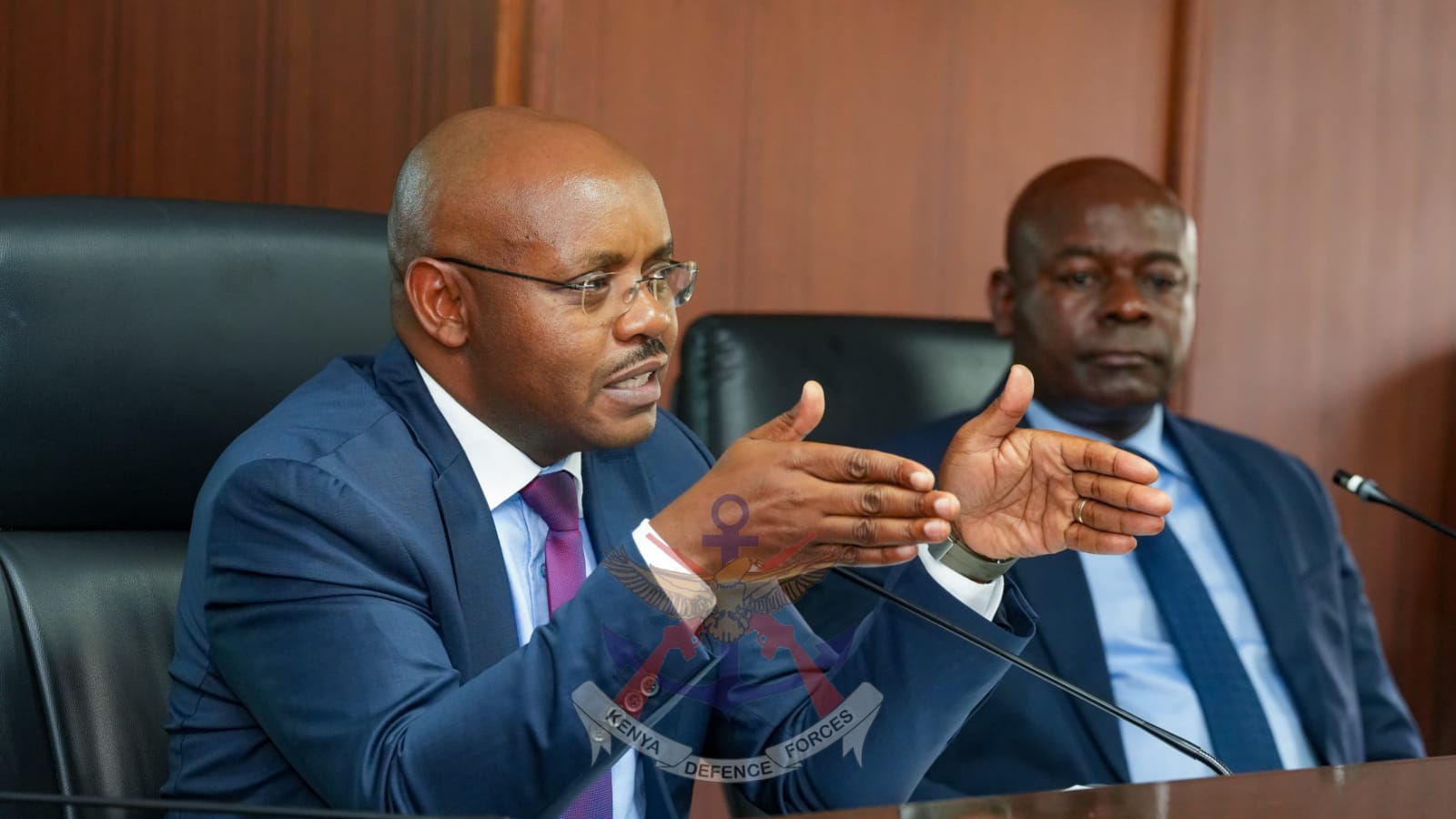

The unease comes amid resurgence of the Al-Qaeda-linked jihadist group that last week came close to assassinating Somalia president Hassan Sheikh Mohamud with a roadside bomb attack.
That same week, at least 100 heavily armed militia sneaked into Kenya, preached radicalism for almost half an hour, and then vanished into the dense Boni Forest within Lamu County.
The new report indicate the equipment serviceability state of Kenya’s military is way below the UN Statement of Unit Requirement (SUR).
Consequently, Observations by the Departmental Committee on Defence, Intelligence and Foreign Relations captured in the report is that the Ministry of Defence needs Sh5 billion to upgrade the equipment being used by KDF in Somalia.
The state of the equipment, the report says, is attributed to “extended deployment in Somalia against a proportionate budget over time”.
The SUR outlines the specific capabilities, tasks, and organizational structure of a UN military or police unit deployed to a peacekeeping mission, serving as the basis for generating and deploying these units to effectively contribute to a peacekeeping mission.
The deployment of equipment for UN missions is guided by the UN Statement of Unit Requirement (SUR) prescribing standards of equipment for deployment.
“The required funding of KES.5 billion is to facilitate the initial logistic requirement for deployment and take full opportunity of equipment reimbursements. The requested amount will be recouped through reimbursements by the UN for the deployed units that go directly to MoD [Ministry of Defence],” the report says.
This comes as Kenya prepares to contribute troops to the African Union Support and Stabilization Mission in Somalia. AUSSOM replaced the African Union Transition Mission in Somalia (ATMIS), whose mandate ended on December 31, 2024.
This is after the United Nations Security Council adopted resolution 2767 (2024), endorsing the extension by one year to support the Somalia government forces in degrading al-Shabaab and affiliates.
“For Kenya to be allowed to deploy to the Mission and achieve full reimbursements under the UN's Contingent Owned equipment (COE) System, the deployed equipment must meet the operational capabilities prescribed,” the report noted.
Contingent Owned Equipment is owned and brought by UN member states to peacekeeping missions. In the arrangement, the UN financially reimburses member states for their contributions of these equipment and also for the self-sustainment services they provide to the contingents. The system is managed by the COE Working Group, which consists of the member states.
This comes at a time there are concerns over the condition of equipment in Somalia and in Haiti.
For instance, Multinational Security Support Mission to Haiti said in a statement that the killing of the second officer in an ambush involved a stalled police vehicle.
Two MSS Mine-Resistant Ambush Protected (MRAP) vehicles were dispatched to assist in the recovery of a Haitian National Police armored vehicle on patrol that got stuck in a ditch—suspected to have been deliberately dug by gangs.
In response, two MSS Mine-Resistant Ambush Protected (MRAP) vehicles from Pont-Sonde were dispatched to assist in the recovery, the statement said.
“Unfortunately, during the recovery operation, one of the MRAPs also got stuck, while the other developed a mechanical issue. As the rescue teams attempted to resolve the situation, suspected gang members lying in wait launched an attack,” MSS spokesman Jack Ombaka said in the statement.
A police officer on the ground alluded to the need to properly equip the forces for them to battle the gangs.
“We will pursue them to the end but we need more resources,” the officer said.
Officers who spoke to Reuters last year also decried delay in delivery of equipment, an issue that former US Ambassador to Kenya Meg Whitman acknowledged.
“Today or tomorrow virtually all the equipment will have arrived to support the Kenyan troops. It would have been better had they arrived a little more sooner,” Whitman said in August.
In August 2023, then Defence CS Aden Duale said the ministry would import modern equipment to help the Kenya Defence Forces in the war against terrorism.
“I want to tell Kenyans that by December, we will have very protected modernized equipment arriving in our country so that our teams battling Al Shabaab will never be victims of IEDs and all other small choices of weapons that the terror group uses,” Duale said in an interview on Citizen TV.










